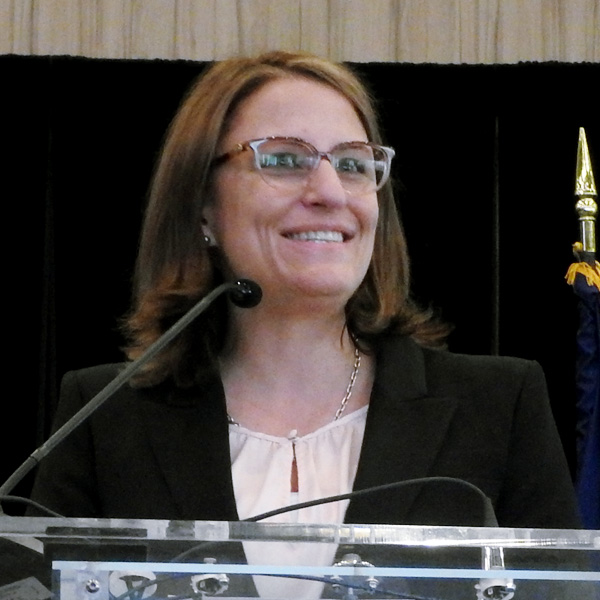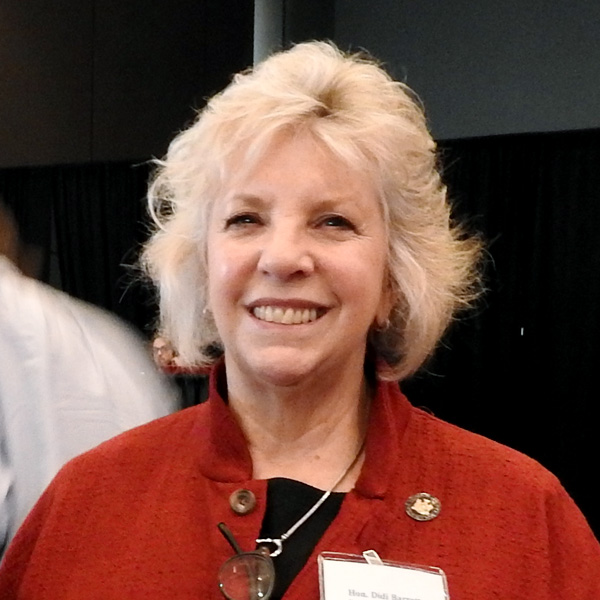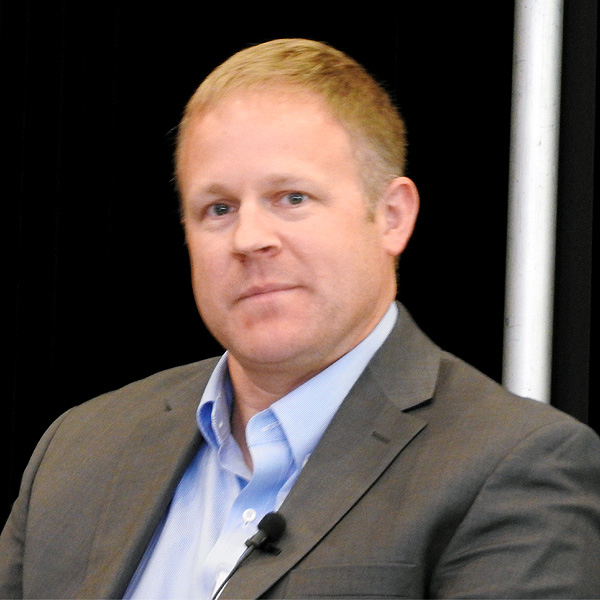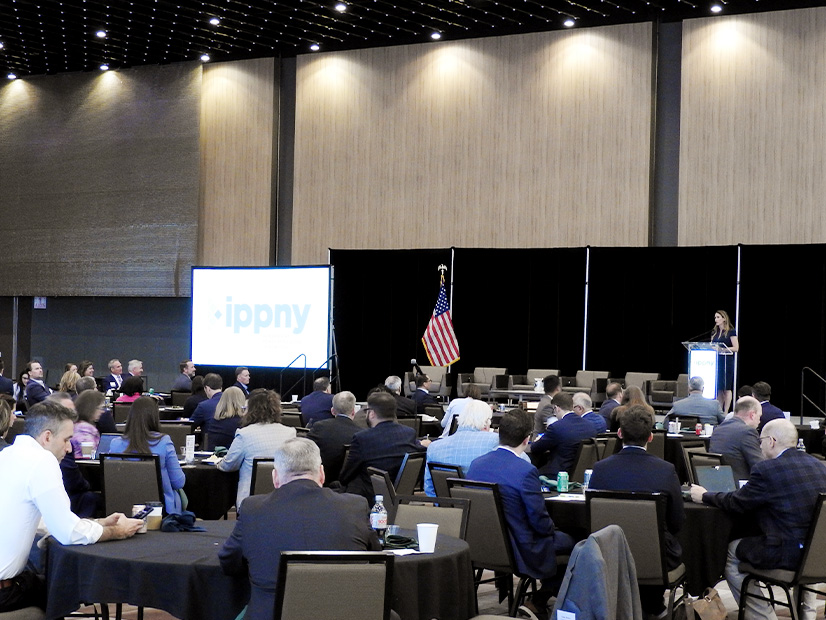ALBANY, N.Y. — The Independent Power Producers of New York’s (IPPNY) annual Spring Conference on Wednesday highlighted the challenges New York faces as it decarbonizes.
Some prominent figures in the industry shared their thoughts on how New York can achieve its ambitious energy and climate goals.
 NYSERDA President Doreen Harris | © RTO Insider LLC
NYSERDA President Doreen Harris | © RTO Insider LLC
“We are literally experiencing this transition in every way across our economy every day,” said Doreen Harris, president of the New York State Energy Research and Development Authority. “We got our work cut out for us” because “when it comes to climate action and clean energy, all eyes are on New York. …
“But I am truly optimistic about the ways we can achieve [New York’s] goals and build a truly inclusive energy economy that sets the example for others to follow,” she added.
“We’re entering the period in our transition when it feels like a marathon,” New York Public Service Commissioner Diane Burman said, so in the near term, the state must “focus on being prepared and getting the right resources in place.”
“We need to look at every technology, because wind and solar aren’t going to get the job done,” State Sen. Mario Mattera (R) said. Constituents must demand more answers from their policymakers “about how this transition will get done and paid for” because “we want to make sure we’re creating jobs, not losing them.”
 NY Assemblymember Didi Barrett | © RTO Insider LLC
NY Assemblymember Didi Barrett | © RTO Insider LLC
New York State Assemblymember Didi Barrett (D) agreed, saying, “This [transition] cannot be done on the back of ratepayers,” adding that the state “needs to be open to new technology opportunities” while “educating the public about the realities they’ll face.”
Keynote speaker Alexis Glick, CEO of biomethane producer Nature Energy, discussed the benefits from biofuels, saying, “We need an all-of-the-above approach because it’s what New Yorkers do really well.” They “recognize that innovation, investment, fresh thinking and an inclusive approach is critical to our combined success.”
Bart Franey, vice president of clean energy development at National Grid, noted the benefits from energy storage resources and how they can enable New York to connect other renewables to the grid at scale without the need to make as many transmission and distribution system upgrades.
Rudy Wynter, president of National Grid, commented on the importance of workforce training and development, saying, “We want to make sure that all the jobs that will be created during the energy transition are secure, because we know in previous [historical] transitions communities have been left behind … so [National Grid] works directly with communities to make sure they understand that those jobs are coming, and we help them get prepared for those jobs.” (See In Climate Leader NY, Energy Workforce Rising from Ground Up.)
Zach Smith, NYISO vice president of system and resource planning, commented on how dispatchable emissions-free resources are “not some unicorn technology.” New York can attract future resources with certain desirable attributes by sending the right price and market signals that encourage investment in new technologies.
In reference to the increasing risks posed by extreme weather events, Chris Wentlent, chair of the New York State Reliability Council’s Executive Committee, said the state needs to understand how every grid resource is impacted and correlated to natural disasters because without this knowledge, the state will struggle to successfully transition.
 Aaron Markham, NYISO | © RTO Insider LLC
Aaron Markham, NYISO | © RTO Insider LLC
Aaron Markham, NYISO vice president of operations, said, “We need to keep our eyes open to how [New York’s] transition is progressing” because there is a concern that as the state decarbonizes, its energy supplies could become compromised and the ISO will find itself unable to reliably meet growing electricity demands.
Eastern Generation CEO Mark Sudbey said, “We need to be realistic to people about decarbonization’s timelines because I am concerned that our goals are too aspirational” and, in attempting to transition too quickly, the state may end “up doing something foolish.”
IPPNY President Gavin Donohue closed out the meeting by saying the challenge for New York will be to transition in a reasonable manner while ensuring that innovation is not compromised, investments are not discouraged and that environmental justice concerns are still considered.
